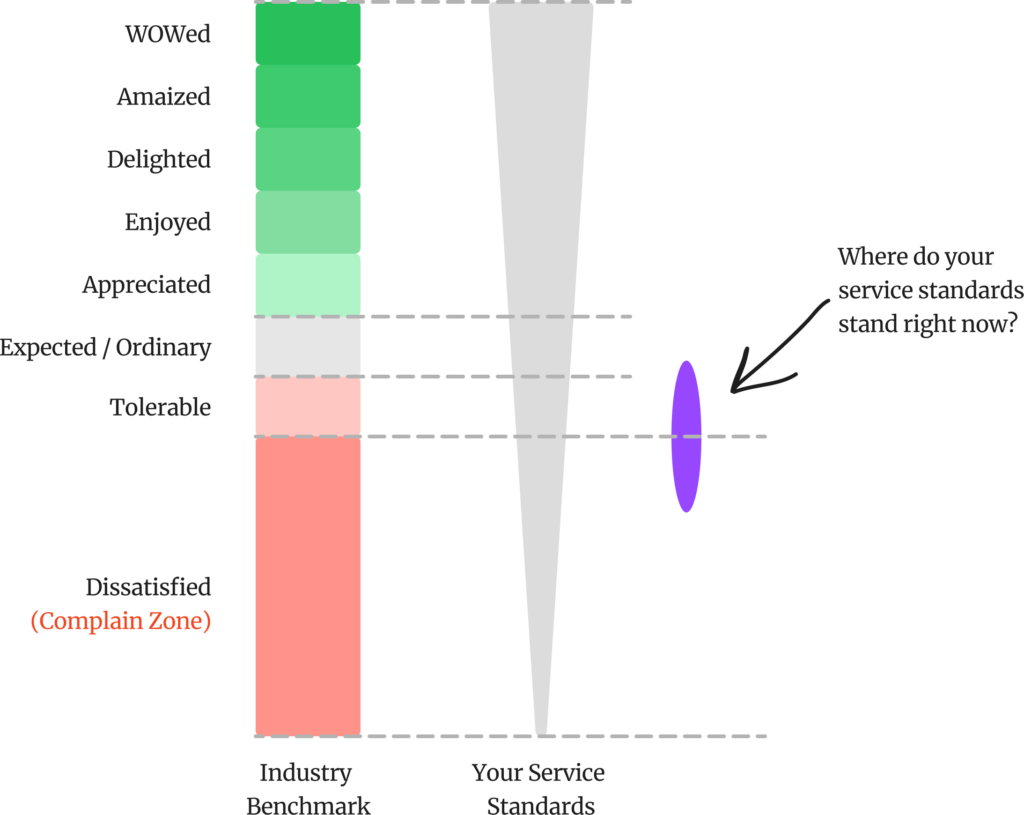Complaint are good news
Many businesses see complaints as a burden, but they are actually a treasure trove of insights that can significantly improve service and operations. A complaint, simply put, is an expression of dissatisfaction from a customer regarding a product or service. However, this dissatisfaction holds much more value than just highlighting where things went wrong—it serves as a guide for businesses to understand the gap between their service standards and customer expectations.
Complains reveal what’s critical yet invisible
In essence, a complaint acts as a “signal” that reveals where your service or product falls short compared to industry benchmarks and your customers’ expectations. Instead of seeing complaints as a negative, they should be viewed as feedback to help refine operations and deliver better experiences. When customers take the time to complain, they’re essentially giving you an opportunity to fix an issue before losing their business for good.

Complains are help you see where does your “band” of service standard lies as compared to industry benchmark and user-expectations.
Complains are better than silence
According to research on dairy milk processors in Kenya, there is a weak but positive relationship between how well complaints are handled and consumer satisfaction.
While complaints didn’t significantly affect satisfaction in this particular case, businesses were able to see where their handling mechanisms were failing. This shows that complaints offer insights into areas where businesses need to be more proactive or better equipped, particularly in improving processes.
Complains help you see many a things
Reveal Service Gaps: Complaints show you exactly where your service or product is not meeting expectations, providing you with specific areas to focus on. This allows for a targeted improvement strategy, which might be missed without feedback.
Customer Retention: Handling complaints effectively can actually increase customer loyalty. According to research, customers who feel heard and have their issues resolved quickly are more likely to return and even advocate for your business
. In contrast, poorly managed complaints can drive customers to competitors.
Market Intelligence: Complaints are valuable sources of real-time market data. They let you know how your product or service is perceived and how it compares with competitors. Customers often make comparisons when they voice dissatisfaction, so businesses can gain insights into industry trends.
Prevent Negative Word of Mouth: Dissatisfied customers are more likely to share their negative experiences with others. If a business resolves a complaint satisfactorily, it not only keeps the customer but also prevents potential reputational damage caused by negative reviews or word of mouth.
The Power of Effective Complaint Handling
Effectively handling a complaint does more than just resolve an issue—it demonstrates that your business values its customers and their experiences. According to Hong and Lee (2005), when customers feel that their complaints are handled effectively, their satisfaction can be even higher than it would have been without a complaint. The act of addressing the problem shows that the business is genuinely committed to customer satisfaction, fostering trust and long-term loyalty.
Furthermore, Magnini (2007) suggests that merchants who handle complaints effectively can often convince customers of their genuine commitment to improvement, turning a negative experience into a positive one. When done right, complaint resolution can even lead to stronger customer relationships.
Turning Complaints into Opportunities
To fully leverage the benefits of complaints, businesses must establish clear and accessible complaint handling processes. This means having dedicated teams, clear procedures, and training in place to manage and resolve issues promptly. In the dairy industry in Kenya, a lack of trained personnel and outdated methods for handling complaints, like relying on supermarket attendants, resulted in dissatisfaction. This situation highlights the need for well-equipped staff and modern approaches, such as digital complaint systems.
Complaints should be welcomed as opportunities to grow, improve, and better serve your customers. With the right mindset and processes, businesses can turn complaints into catalysts for long-term success.
Conclusion
A complaint is not just a signal of dissatisfaction; it is a mirror that reflects the difference between your service and customer expectations. Embracing complaints as constructive feedback allows businesses to address root causes, improve customer satisfaction, and build stronger relationships. Rather than being viewed as a burden, complaints are invaluable for continuous improvement and sustainable growth in any competitive market.
By handling complaints effectively, businesses can show their commitment to excellence, retain more customers, and gain valuable market insights. Ultimately, complaints are a good thing—they give businesses the roadmap they need to thrive.
References:
Influence of Consumer Complaints Handling on Consumer Satisfaction in Dairy Milk Processors in Kenya – 2019


Leave a Reply